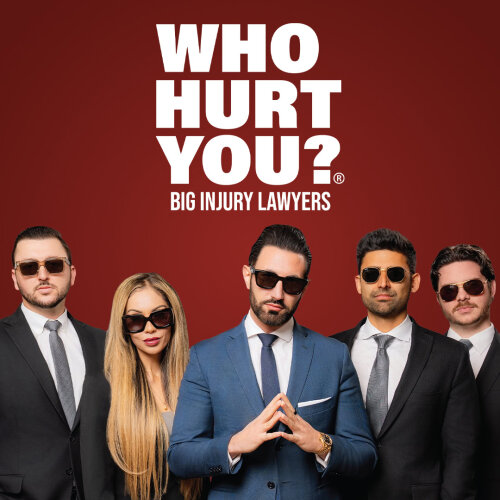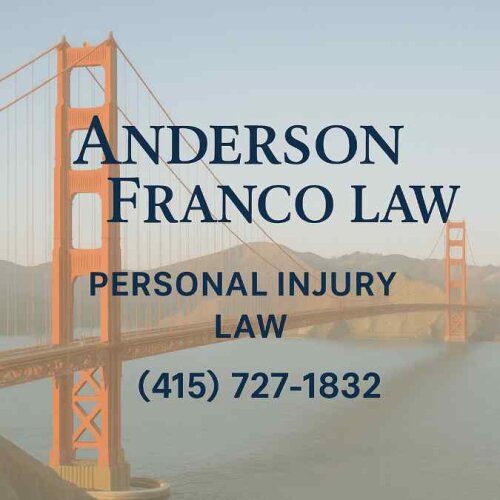Best Assault & Battery Lawyers in California
Share your needs with us, get contacted by law firms.
Free. Takes 2 min.
Or refine your search by selecting a city:
List of the best lawyers in California, United States
About Assault & Battery Law in California, United States
In California, assault and battery are two distinct criminal offenses, although they are often mentioned together. Assault is defined as an unlawful attempt, combined with a present ability, to commit a violent injury on another person. It does not require physical contact. Battery, on the other hand, involves the actual use of force or violence against someone else. These offenses are taken seriously in California, with varying degrees of severity based on the circumstances of each case.
Assault and battery can lead to both criminal charges and civil lawsuits. The consequences for those convicted can include fines, jail time, restraining orders, and a permanent criminal record. Due to the complexity of these matters and the significant impact a conviction can have on your life, it is crucial to understand your rights and the legal process.
Why You May Need a Lawyer
Legal situations involving assault and battery are often stressful and complex. Here are some common scenarios when seeking legal help is important:
- You have been accused or charged with assault, battery, or both.
- You are the victim of an assault or battery and wish to seek justice or compensation.
- You are facing false accusations or misunderstandings leading to legal trouble.
- You fear incurring penalties such as jail time, fines, or a restraining order.
- Your case involves aggravating factors, such as the use of a weapon, serious injuries, or an alleged attack on a protected person (such as a police officer).
- You are considering settling the matter outside of court and need guidance on your options and rights.
A qualified lawyer can help protect your rights, offer strategic advice, challenge evidence, and strive for the best outcome whether you are a defendant or a victim.
Local Laws Overview
California law distinguishes between assault and battery, each governed by specific sections of the Penal Code:
- Assault (Penal Code Section 240): Defined as an attempt to use force or violence against another person. No physical contact is necessary for this charge.
- Battery (Penal Code Section 242): Involves willful and unlawful use of force or violence upon another person. Even minor contact can count as battery if it is offensive or harmful.
- Aggravated Assault & Battery: Charges can be elevated when there are aggravating circumstances, such as use of deadly weapons (Penal Code Section 245), causing serious bodily injury, or if the victim is in a protected class (such as police officers, school employees, or domestic partners).
- Penalties: Assault and battery are generally misdemeanors, but can become felonies if injuries are severe or weapons are used. Penalties might include jail or prison time, fines, probation, and mandatory anger management classes.
- Self-defense: California law allows a person to use reasonable force in self-defense or in the defense of another, as long as the force used is proportionate to the threat faced.
Frequently Asked Questions
What is the difference between assault and battery in California?
Assault is an attempt or threat to cause harm, while battery is the actual physical contact or use of force against someone. Both are separate charges and can be prosecuted together or independently.
Can I be charged with assault even if I did not touch the other person?
Yes. In California, assault does not require physical contact. Simply attempting or threatening to cause harm with the ability to do so can result in an assault charge.
What are the typical penalties for assault and battery in California?
Penalties depend on the severity of the incident. Simple assault or battery is usually treated as a misdemeanor, with penalties that can include up to 6 months in jail and fines. Felony charges can result in much harsher penalties, including longer jail or prison sentences.
How does self-defense work in assault and battery cases?
You may lawfully defend yourself or someone else if you reasonably believe you are about to suffer imminent harm. However, the force used must be reasonable and not excessive given the circumstances.
What happens if the assault or battery involves a weapon?
Using a weapon or causing serious injury typically escalates the charges to aggravated assault or battery, which are considered more serious felonies and carry enhanced penalties, including longer prison sentences.
Can victims of assault and battery file a civil lawsuit in addition to criminal charges?
Yes. Victims can seek compensation for damages, such as medical bills, lost wages, and emotional distress, by filing a civil lawsuit apart from any criminal proceedings.
What should I do if I am falsely accused of assault or battery?
Contact an experienced criminal defense attorney immediately. False accusations are serious and can have life-altering consequences, but a lawyer can help gather evidence and present your defense.
Are there different rules for assault and battery involving family or domestic partners?
Yes. Assault or battery involving current or former spouses, partners, or family members may be charged under California’s domestic violence laws, which have their own set of procedures and potential penalties.
Do I have to answer police questions if I’m being investigated for assault or battery?
You have the right to remain silent and to consult with an attorney before answering any questions from law enforcement. It is generally advised to exercise these rights to avoid self-incrimination.
Can a conviction for assault or battery be expunged from my record?
In certain cases, convictions for misdemeanor or some felony offenses may be eligible for expungement, which removes the conviction from your public record. Eligibility depends on your specific circumstances and meeting certain legal requirements.
Additional Resources
Here are some helpful resources and organizations for those dealing with assault and battery issues in California:
- California Courts Self-Help Center: Information on criminal law, victims’ rights, and protection orders.
- California Victim Compensation Board: Provides financial assistance to crime victims.
- Local Legal Aid Societies: Nonprofit organizations that offer free or low-cost legal advice to eligible individuals.
- Lawyer Referral Services: Many county or city bar associations can connect you with experienced criminal defense attorneys.
- California Department of Justice: Resources for victims as well as public safety information regarding violent crime.
Next Steps
If you are facing charges or have been the victim of assault or battery in California, taking prompt action is important:
- Do not discuss details of your case with anyone except your legal representative.
- If charged, contact an experienced criminal defense attorney as soon as possible.
- If you are a victim seeking protection or compensation, consult a qualified attorney or a victim support organization for assistance.
- Gather and preserve any evidence, including witness information, photos, and medical records.
- Cooperate with your attorney to ensure the best possible outcome for your case.
Seeking professional legal advice is the best way to understand your rights, navigate the court system, and protect your interests in an assault or battery case in California.
Lawzana helps you find the best lawyers and law firms in California through a curated and pre-screened list of qualified legal professionals. Our platform offers rankings and detailed profiles of attorneys and law firms, allowing you to compare based on practice areas, including Assault & Battery, experience, and client feedback.
Each profile includes a description of the firm's areas of practice, client reviews, team members and partners, year of establishment, spoken languages, office locations, contact information, social media presence, and any published articles or resources. Most firms on our platform speak English and are experienced in both local and international legal matters.
Get a quote from top-rated law firms in California, United States — quickly, securely, and without unnecessary hassle.
Disclaimer:
The information provided on this page is for general informational purposes only and does not constitute legal advice. While we strive to ensure the accuracy and relevance of the content, legal information may change over time, and interpretations of the law can vary. You should always consult with a qualified legal professional for advice specific to your situation.
We disclaim all liability for actions taken or not taken based on the content of this page. If you believe any information is incorrect or outdated, please contact us, and we will review and update it where appropriate.
Browse assault & battery law firms by city in California
Refine your search by selecting a city.















